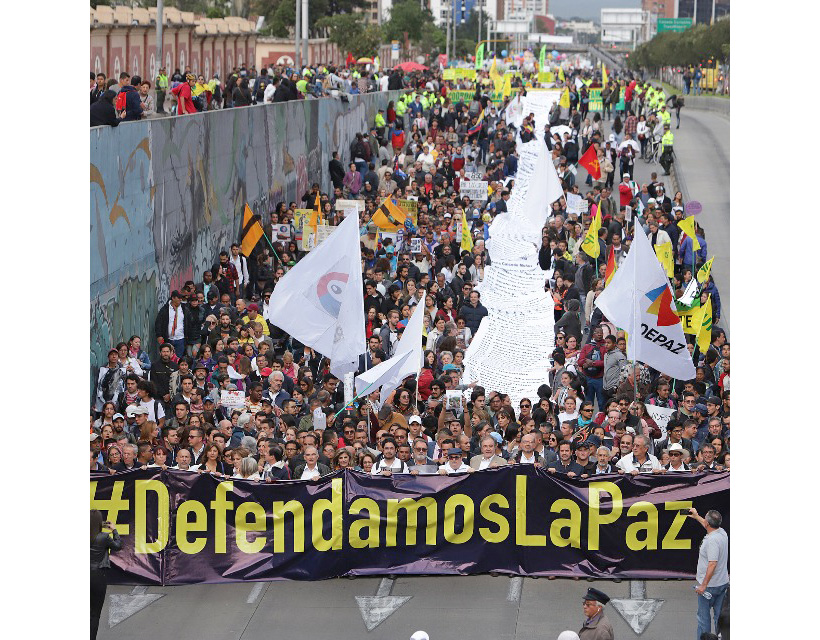Four years ago, on 20 February, in the midst of a government that we need to remember because contexts are necessary to understand things, the Defend Peace movement was born. We joined together civil society, artists, former ministers, and peace signatories; activists, congressmen, and businessmen; trade unionists, priests, and journalists; defenders of the environment, feminism, minorities, and human rights. Some 150 people from different ideological, geographic, and political backgrounds, are committed to removing it, protecting the lives of signatories, leaders, and social leaders, promoting dialogue with the ELN, and guaranteeing the development and fulfillment of the bodies born out of the peace process in Havana.
We did not have then, nor do we have now, statutes, income, or an organizational chart. We have a flag and conviction, a common thread and a powerful raison d’être. We have woven intellectual and emotional links – many of them unthinkable before the Agreement – that have accompanied us during these four years in the day-to-day and in the crucial, introspective moments behind closed doors, flying over Tierralta, meeting in Montes de María or on the roads of Caquetá. We have felt in our own souls the defencelessness and courage in the streets of Caloto and in the rivers of Arauca. We have learned to feel as our own many of the wounds of others, and to heal the coordinates where sad memories intersect. I believe that together we are better people and we are trying to come back from a horrible night in which we have all, at some point, extinguished a piece of a star, by silence or omission, by fear, complicity or indifference.
The longer and deeper the tunnel, the further away the light. In our country, the extensive cavern of recent wars is more than 60 years old, and that of social violence, 200. So, work is what we have; the current government is risking everything for the greatest peace to which Colombia has ever aspired, and we know that the transformation will take time and risks. We will have to exercise a healthy balance between support and critical thinking; strengthen democracy and recognize that war is not normal, nor can it be customary, nor are we going down with it and because of it.
As Defend Peace, we survived a government that was hostile to what was agreed in Havana, and we overcame electoral processes that could have fragmented us. Personally, I know that I have not done enough for the state to fulfill its constitutional mandate to protect the lives of 50 million Colombians, and I have failed every leader, social leader and peace signatory who has been killed.
“Chronicle of a death foretold” could be the title of what is happening in much of our country. In cities and territories, in the profundity of Colombia (profoundly forgotten), in the school that becomes a morgue and in the shot in the back and in the rivers turned into mobile cemeteries. Another history is possible and urgent, and it must be written with filigree and firmness, with open windows and respect for institutions. In the no end, everything is a challenge, a pact, a promise to never give up.
Let us defend Peace has no borders or ties. We are what we are, what we feel and what we are committed to. We are today more than three thousand men and women; 300 are in exile and work tirelessly, from Chile to Denmark and from Mexico to Australia, to achieve a Colombia without violence. Defend Peace is, in short, an imprint on our hearts.










